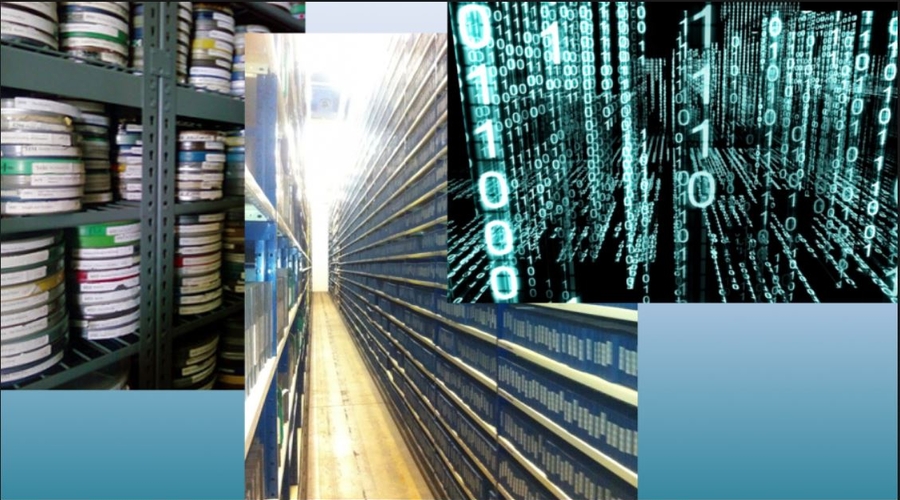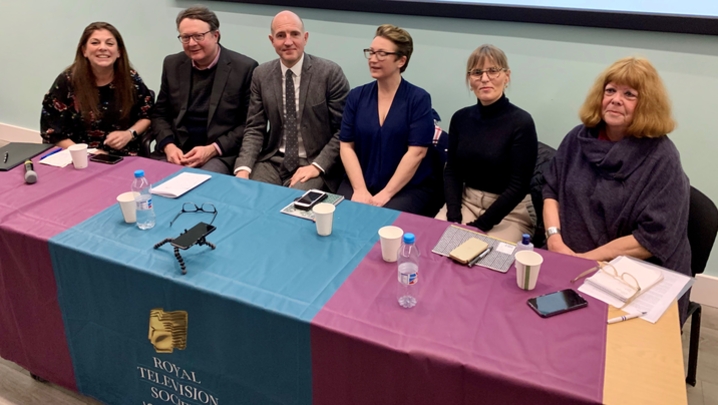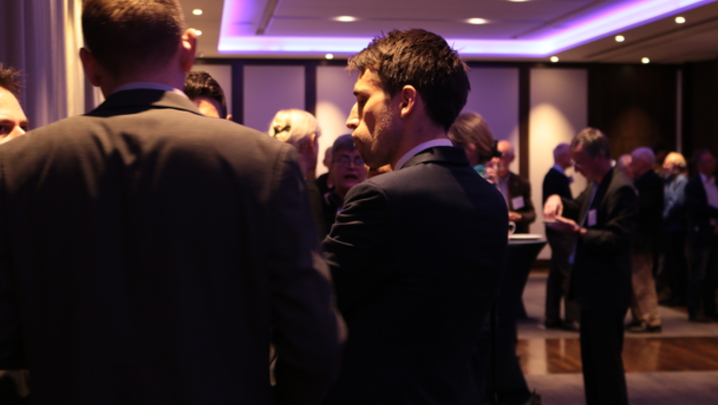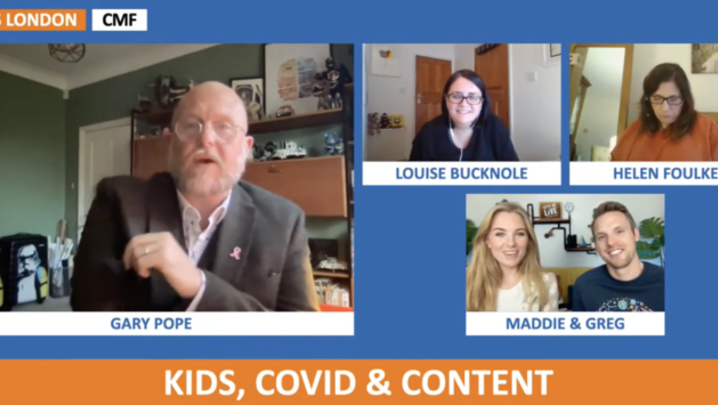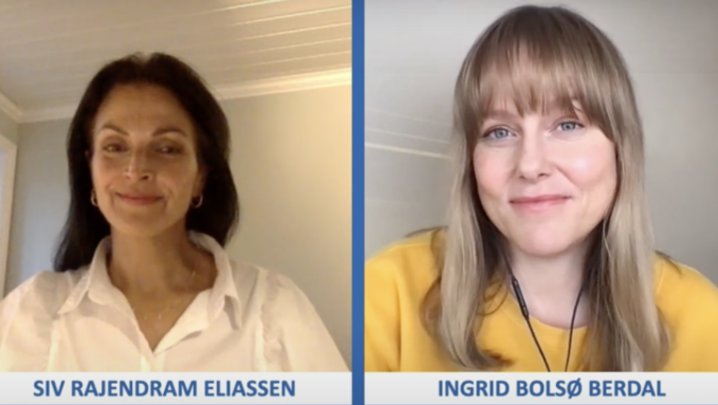The future of television programmes past and present is digital – and safe, according to a panel of archivists assembled at ITV London Studios. (Full video below)
At a joint event put on by RTS London and the Federation of Commercial, Audiovisual Libraries (FOCAL) in late February, the experts said that – although it is a huge task – they would be able to digitise the best of telly’s vast archive of tape programmes.
Steve Daly, head of technology at BBC Archives described his job as “looking after everything the BBC would like to keep forever”. This includes paper records, radio archives, sheet music, social media archive and music libraries, as well as telly programmes.
Since late 2014, all programmes commissioned by the BBC have been delivered in a digital file, rather than on tape. “That effectively closed the door on our video tape archive for new material coming in, excepting an occasional tape found in somebody’s cupboard,” he revealed.
New tape machines are neither manufactured nor existing equipment maintained, which, explained Daly, “sets a ticking clock on our ability to play back the large [tape] collection we have in our archive”.
ITV’s archive, which is stored in Leeds, includes the television programmes broadcast since its birth in 1955 and British film collections such as early-period Alfred Hitchcock and David Lean classics.
“We decided to build our own digital infrastructure to enable us to hold all the new forms of content in the archive and to start to digitise our back catalogue on an as needed basis,” explained Dale Grayson, ITV director of content management.
Grayson, who is Chair of the RTS Archive Group, added that there are no plans for a “mass digitisation project”.
The British Film Institute (BFI) archive contains around 625,000 TV programmes in addition to its film collections. It has so far digitised more than 10,000 pieces of archive film, which can be watched, mostly for free, on the online BFI Player.
Accessibility and preservation go hand in hand.
Charles Fairall, head of conservation at the BFI National Archive, suggested that the title of the RTS/Focal event – “Future Past: will archives survive digitisation?” should be rephrased. “How can archives do without digitisation?” would be more apposite, he argued.
“Among the biggest challenges is the sheer scale of video tape that exists still in its original form on shelves around the world in broadcast and heritage archives. Digitisation is the only answer for the long-tem restoration of content,” explained Fairall.
Tom Blake, director of media management and content distribution specialist Imagen, whose clients include the BFI, said that “accessibility and preservation go hand in hand”.
He explained that the role of his firm is “to build the best tools so that the [archivists] can make the best possible use of their digital content”, adding that some of this archive would “have a value” that could be commercialised.
The BFI’s Heritage 2022 project aims to digitise and preserve at least 100,000 programmes, currently only on tape formats, over the next five years. These include comedies such as At Last the 1948 Show, current affairs show Nationwide and children’s shows, including Basil Brush and Tiswas. “There is a pressing need to get [shows] off video tape,” said Charles Fairall.
“I find it very hard to make the argument to keep all the tapes when we’ve digitised them because of the cost [of restoration],” he argued.
“We’re going to see a secure digital future and then we’re going to have to be realistic about disposing of the originals.”
“Future past: will archives survive digitisation?” was chaired by FOCAL International’s Sue Malden and produced by Carol Owens.
Following the success of the highly attended session in February, our panel of experts from the key organisations with responsibility for national television archiving have agreed to meet annually to continue the debate and keep our community informed of progress and collaboration. We all need to be thinking about legacy and born-digital content, agreement on standard file formats for master copies, and the up-date process for storage systems and platforms. We also need to be clear about the skills needed for the future, and the impact of Artificial Intelligence. The experts will consider whether we need a wider UK strategy for the future of audio-visual archives, their organisational position and mission, operational and funding models, and common national policies.

